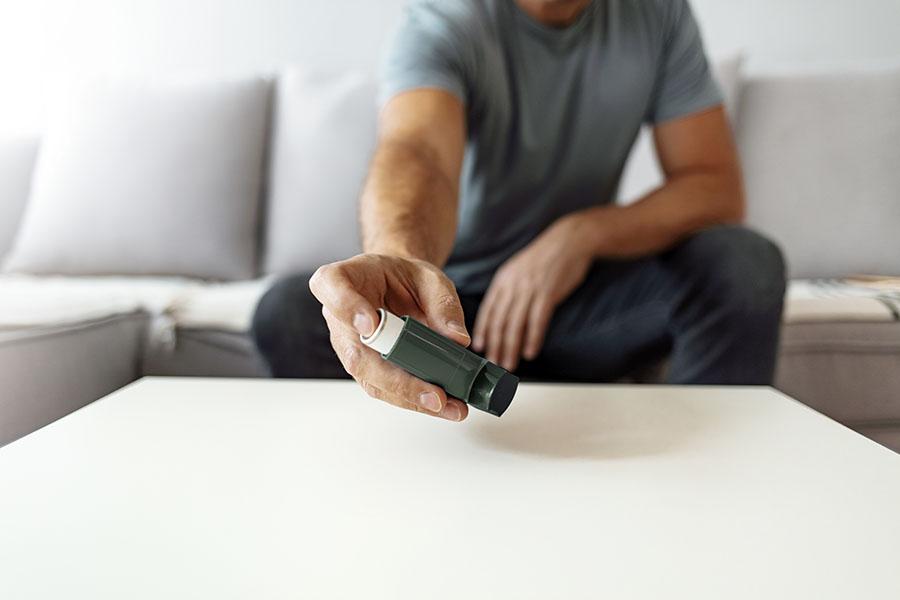GERD, Acid Reflux and Heartburn
What Is GERD, Acid Reflux and Heartburn?
Gastroesophageal reflux disease (GERD), acid reflux and heartburn all occur when stomach acid rises up the digestive tract into the esophagus with food. This acid causes a burning sensation in the back of the throat and chest, which is where the name “heartburn” comes from.
GERD vs. Acid Reflux vs. Heartburn
GERD is generally considered more serious than acid reflux or heartburn, and requires a diagnosis from a medical professional, such as a gastroenterologist. While everyone may experience heartburn or acid reflux from time to time, GERD may be suspected if you experience reflux more than twice a week.
- Acid reflux is a common condition where you can experience heartburn and regurgitation (stomach acid backing up into your throat or mouth). When acid reflux happens frequently, it may progress to GERD.
- GERD is a chronic, more severe form of acid reflux. Symptoms are the same as acid reflux, but they happen more frequently with GERD.
- Heartburn is a burning sensation in the chest or abdomen, and is the most common symptom of acid reflux and GERD.
Who Is at Risk for GERD?
Anyone can get GERD, but you may be at higher risk if you:
- Have a hiatal hernia
- Smoke
- Are obese
- Are pregnant
What Are Symptoms of GERD?
Symptoms of GERD include:
-
Frequent heartburn
-
Difficulty swallowing
-
Dry cough
Some patients with GERD also have lung disease, which can make symptoms worse. It’s important to seek care from physicians who are skilled in treating this overlap, so that your GERD can be managed properly.
What Is the Long-Term Treatment for GERD?
It’s important to treat GERD quickly to avoid long-term health risks, including ulcers, bleeding, esophagitis or Barrett’s esophagus. Treatment for GERD may include medication or lifestyle changes. Your gastroenterologist will discuss which treatment option is best for you, including:
-
Improve your health – If you smoke, your doctor will discuss how quitting can help relieve GERD symptoms. Losing weight can also help improve acid reflux.
-
Adjust eating habits – Eating small, frequent meals, avoiding foods and drinks that worsen symptoms, and staying upright (without lying down) for 3 hours after meals can help avoid acid reflux.
-
Use a wedge pillow for sleeping – You could try lying on a special wedge pillow that is designed to keep you at an incline while sleeping to relieve GERD symptoms.
-
Take medication – Your gastroenterologist will discuss which medication is right for your GERD. Antacids, foaming agency, H2 blockers or a proton pump inhibitor can help address the source of your heartburn and improve your symptoms.
-
Consider surgery for severe GERD – Surgery may be needed to address severe GERD that isn’t managed with medication or diet and lifestyle modification. We offer a wide range of surgical options for diagnosing and treating GERD, including fundoplication, endoscopic techniques and LINX, an innovative and minimally invasive surgery that helps prevent reflux.
About the LINX Procedure
The LINX device is a flexible ring that is intended to reduce daily GERD symptoms. When a patient swallows food or water, the device will expand to allow food to enter the stomach. Then almost immediately, it will close again to prevent reflux from the stomach into the esophagus.
The LINX device is implanted surgically. The LINX procedure is done laparoscopically, meaning that the surgeon makes 3 or 4 smaller incisions in the abdomen and uses tools and cameras to implant the device.
It's a quick procedure and minimally invasive. Patients often go home from the hospital the very same day.
The device is safe and effective in the long-term.
Ready for an Appointment?
If you're experiencing signs or symptoms of GERD, acid reflux and/or heartburn, request an appointment online or call 800-TEMPLE-MED (800-836-7536) today.
Learn more about our doctors and care team who diagnose and treat GERD, acid reflux and heartburn.

